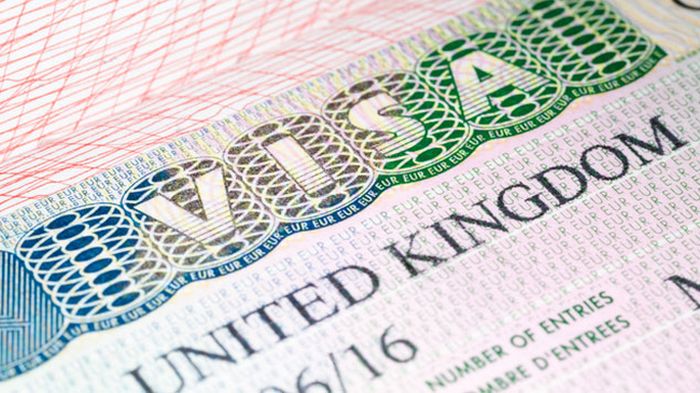International students from a new trusted list decided by the UK government in late 2018 now enjoy relaxed visa restrictions. The home secretary, Sajid Javid, made the changes to student visa requirements in September 2018.
The changes are applicable to international students from Canada, Australia, the USA, New Zealand, Hong Kong, Argentina, Barbados, Botswana, Brunei, Chile, Japan, Malaysia, Qatar, Singapore, South Korea, Trinidad and Tobago, the UAE and Taiwan who come to the UK for the purpose of studying.
The changes were made to the Tier 4 visa restrictions. These have simplified the application process for international students and means that students from these countries will no longer need to prove their ability to speak English or show evidence of funds to support themselves during the duration of their study in Britain.
The relaxation of restrictions has been welcomed in what was described as an overly bureaucratic and expensive process for potential international students. Mr. Javid chose to change the requirements for countries he deemed to be ‘low risk’ abusers of the system.
The resulting impact is hoped to be that many thousand more international students will be able to consider the UK as an option for study. The change will also lessen the burden of the visa process on Britain’s economy.
In addition to the relaxation of application criteria, Mr. Javid has recently claimed that he will lift the restrictions on international students working after graduation. As part of his current campaign to become the new Conservative Party leader, Mr. Javid has said that “‘It makes no sense to send some of the brightest and most enterprising people in the world straight home after their time here”.
Instead, he has claimed, he will allow any international students to reside in the UK for a period of up to two years after graduation from a British university. This does, however, currently rely on his success in winning the premier position for the Tory party.
Currently, international students may only undertake employment for four months at the end of their graduate program. This restriction was brought in by Theresa May as part of her 2012 attempt to lower migration as Home Secretary. Prior to this, international students were able to remain in the UK working for two years after graduation. A 2019 analysis claimed that this change to visa allowances had cost the Treasury department £1 billion since 2012.
The government reviewed the restriction of four months brought in by May and deemed it to be too short in the early part of 2019. It was then announced that it would be extended to six months for those studying undergraduate and Master’s programs at British universities. Some, including Mr. Javid, has deemed this extension to be too short.

Since then, the former universities minister, Jo Johnson, has been campaigning for the government to extend the allowance to a two-year period. This is the amendment Tory party hopeful Sajid Javid is now backing.
In a recent discussion with the Financial Times, Mr. Javid claimed that it made no sense to send some of the brightest people in the world straight home at the end of their studies. He continued by claiming that, if successful, he would make the plan proposed by Jo Johnson a government policy.
Mr. Javid has said that he wants “to put skilled Britons in the same room as bright Europeans and those from other nations — in Manchester, Leeds, and London, not Paris or Stockholm” making a clear allusion to his desire to keep the brightest brains and most significant talent from around the world working on British soil.
Many universities, vice chancellors and student organizations, such as The Russell Group, have welcomed these changes and supported the proposal. In fact, international student enrolment in UK institutions has slowed in recent years, particularly in comparison to other countries offering a competitive education. Alistair Jarvis, the Chief Executive of Universities UK, has said that this amendment to the current policy is needed in order to “correct a longstanding policy barrier to growth in international student numbers”.
To prove this point, the number of Indian students studying for degrees in the UK almost halved from 30,000 to 16,000 between 2011 and 2016. It is hoped that the change in visa restrictions may improve this situation. By opening university education in the UK to a wider net of international students, the UK can continue to be a competitive destination for overseas study.
Many supporters have noted the positive impacts such a change would have on economy and society. In fact, a recent study demonstrated that over £3 billion was contributed to the UK economy through tax and national insurance from international graduate payments in 2016.
There has also been overwhelming support for this proposal on social media:
¬ The Russell Group (an organization representing 24 of the UK’s leading university institutions) tweeted: Good to see a growing recognition that international students should be able to stay & work in the UK for longer after studying. If implemented, would make the UK more competitive & benefit our economy & society.
¬ Vivienne Stern (Director of Universities UK) tweeted: This is such enormously positive news. This change, a long time coming, matters for the whole of the country and not just for universities. Many thanks and congratulations to @JoJohnsonUK and @PaulBlomfieldMP for building such impressive support across parties
¬ Jo Johnson (MP) tweeted: Big news – Home Secretary accepts my new clause in Immigration Bill lifting post study restrictions on foreign students! The real win for UK soft power. Many thanks to Conservative colleagues and the x-party MPs who backed it, esp @PaulBlomfieldMP
The result of the Conservative Party leadership race is due to be announced on the 22nd of July.









 Both Students and Employers Benefiting from Micro-Internships
Both Students and Employers Benefiting from Micro-Internships